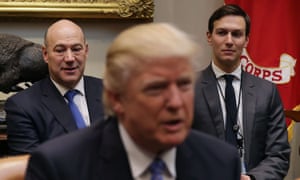REGULATION NEEDED: “Finance capital is the storm, and our governments can and will do nothing about it."
Imagine a mythical planet not visited by the Little Prince. This is a planet divided up into a thousand and one sections with walls between them. There are doors in the walls, and windows of course. But there is no roof to the planet. Everyone on the planet is affected by storms that cross the skies, sometimes devastating this section, sometimes that. Sometimes the storms afflict all the sections, but in different ways: flood in one place and hail in another; cyclone on one, landslide in another.
A man-made storm
The denizens of this planet are peculiar: they are mostly unable to look up. As such, many of them cannot see signs of a gathering storm. The few who can are helpless. What can they do about storms? This is also true of the various presidents, prime ministers, monarchs and dictators who govern the different sections of this planet. Many of these leaders even believe that the storms are necessary: some good will trickle down. So all they can do is regulate the doors and windows of their sections, and the citizens inside them.
We are living on this planet today. With one difference: most of the storm clouds circling us are man-made.
Finance capital is the storm, and our governments can and will do nothing about it. If you are running a national government but cannot really regulate financial speculation and finance capital as the main source of power, what is it that you can do? Regulate people — as citizens and as foreigners. That is the condition, in slightly different ways, of almost every country in the world today.
When liberal capitalism died
Sometime in the 1980s, a strange thing happened to classical liberal capitalism. It was murdered. No one noticed the crime. Today, we are living with the dead body of liberal capitalism, which is why leftist critiques of it also fail. What we have today is said to be neo-liberalism, but neo-liberalism is almost as different from classical capitalism as night is from day. Actually, neo-liberalism is partly a misnomer: it has little to do with liberalism.
Liberalism insisted on the separation of the state and the market, and decried government interference in markets. Neo-liberalism believes that governments should intervene in markets — but only on the side of banks, finance capitalists and lending agencies. Every time financial speculation creates a crisis, governments are expected to tax their citizens and use that money to save banks and financial institutions. Even if one argues, as some do, that liberal capitalism was always to some extent state capitalism, this signifies a major shift.
We have known since the 19th century that money makes better sense than production or services in capitalist societies. Goods and services fluctuate in demand, but money has to be employed no matter what good or service is on offer. Hence, it makes sense, finally, to traffic only in money. Financial speculation is built into capitalism.
But when financial speculation takes over, as it started doing from the 1980s, an entirely different situation comes into being. Today, financial speculation far outstrips global trade. Finance capital tyrannises not just social capital but even industrial capital. Most of the capital used for such financial speculation does not need to be invested in production or services; it can just be moved around in, as U.S. President Donald Trump said about his taxes, ‘smart’ ways. Most of this capital is not even in the shape of cash, which is cumbersome to move. It is sheer numbers, including digital money, and many types of debt and credit.
Mr. Trump’s victory is the assault of finance capital on not just social capital (welfare, public facilities, etc.), which has long been battered, but this time also on industrial capital. Mr. Trump might actually try to ‘bring jobs home,’ but what this will lead to is greater curbs on industrial capital — not only leaving finance capital free, as his Wall Street appointments have indicated, but probably forcing more industrialists to convert industrial capital into financial speculation. Demonetisation in India might be a sincere attempt to fight corruption, but it will also reinforce the ascendency of finance capital, regardless of what the government wants.
Maurizio Lazzarato points out in Governing by Debt that all national governments are basically employed in collecting taxes from their citizens and cutting on social services, in order to keep paying national and other debts to financial organisations. National leaders have come to believe that ‘economics’ is an independent field, far from politics, when actually economics is the new politics of neo-liberalism. That is why governments are employed to tax citizens in order to repay financiers and banks, and governments are also employed to smoothen the paths of financial speculation.
A necessary façade
In this context, the nationalist policing of ‘undesirable foreigners’ is a necessary façade — to obscure the lack of governance of global finance. Xenophobia is inevitable in such a situation, because national leaders cannot even talk of the real storm — invisible finance capital; they can only regulate the bodies on the ground. The general scepticism of politicians — on which Mr. Trump, Turkish President Recep Tayyip Erdogan and so many others have ridden to power — arises from the fact that politicians only govern people today. They cannot govern global finance capital. Instead, finance capital governs politicians.
Politicians have abandoned much of actual politics to the economic ideologues of neo-liberalism, and they cannot even confess it to ordinary people.

